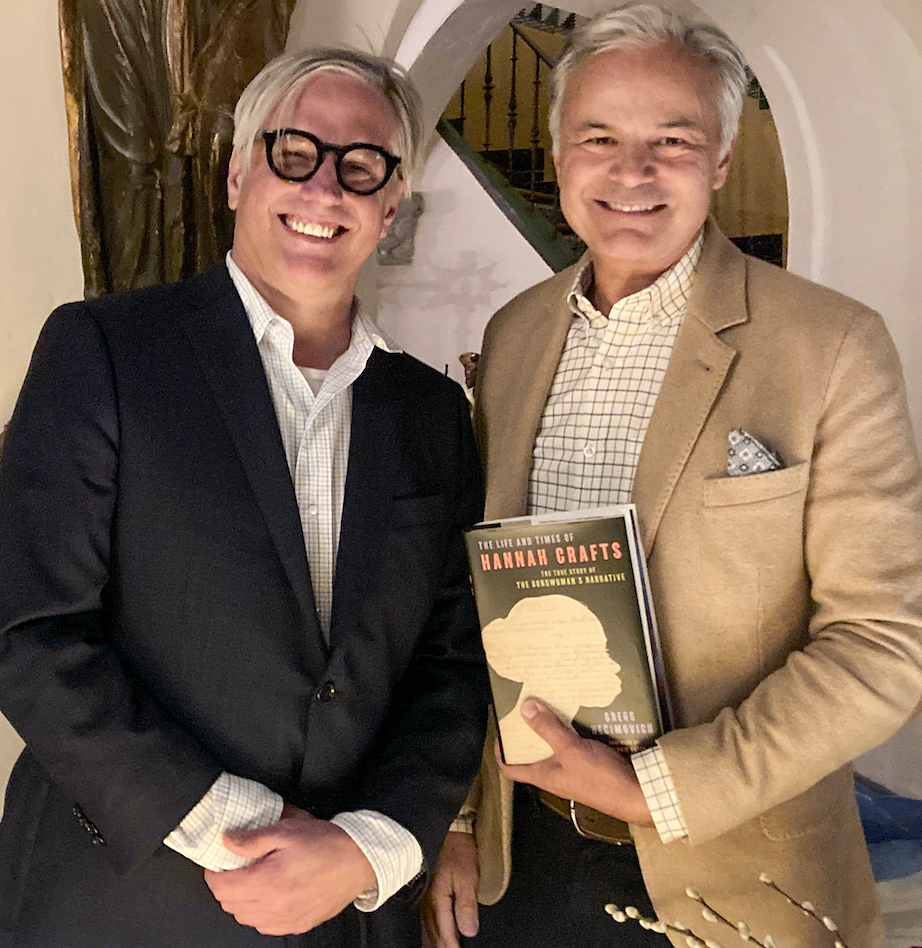Hannah Bond, America’s First Black Woman Novelist
In celebrating Black History Month, this week we honor America’s First Black Woman novelist, Hannah Bond, whose self-styled pen name was Hannah Crafts. Her novel, written in the 1850s, is titled The Bondwoman’s Narrative. It remained an unpublished manuscript until 2001, when it was purchased at an auction by Henry Louis Gates, Jr. from the collection of Black historian and librarian Dorothy Porter Wesley in 2001. Gates is a University Professor and director of the W. E. B. Du Bois Research Institute at Harvard University. Using forensics on the paper and ink, and the novel’s story content, he authenticated the work as written by a Black person prior to 1860. Gates donated the original manuscript to the Beinecke Rare Book and Manuscript Library at Yale University.

Enter Gregg Hecimovich, a professor of English at Furman University in Greenville, South Carolina. In 2003 he said yes to a research request from Hollis Robbins, a co-editor with Gates of essays about Bond’s novel. In 2013, his fact-finding journey resulted in the undisputed evidence that the novel was authored by an enslaved Black woman in the 1850s named Hannah Bond. He then researched her life for 10 additional years. His book, The Life and Times of Hannah Crafts, The True Story of The Bondwoman’s Narrative, chronicles his research.
Medora’s Book Club held at Casa del Herrero on February 6 was dedicated to Black History Month. The book club is directed by television executive Sheraton Kalouria, a literary aficionado bringing A-list authors and their history-making books to our town.
He brought in Hecimovich to present his work and book on Hannah Crafts. Hecimovich read selections from his book, followed by a Q&A with Kalouria.
He shared, “Bond was born as Hannah Bond on the plantation of Lewis Bond in Indian Woods, North Carolina. She was a child of rape by the white man Lewis Bond and her mixed-race mother Hannah Sr. Orphaned at age 10, she was brought up as a servant. During her childhood she began to steal literacy. She continued to do so when she served female college students at a Baptist Women’s College. In 1856, she started to write her novel on paper she stole from her capturer, the diplomat and politician John Hill Wheeler. She smuggled this work out of captivity in 1857, and completed it in 1858 in the Black community of Timbuctoo, New Jersey. She married a teacher and church leader in Burlington, NJ. Literary elements found in Bond’s novel, correlate to the homework assignments of the women college students she served. She never uses periods. She uses dashes at the beginning of a line, and her use of quotations are at the bottom of the line, not on the top.”
In discussing his part in the history of Bond, he credited the many people who helped with the information and research, mentioning that he is only a part of the long list of people who contributed to it. He said, “Bond married a light-skinned man who had a light-skinned son. Her manuscript went to that stepson, who preserved it and gave it to his white landlady at his death. She sold it to a white book dealer who gave it to Emily Driscoll, a white antiques dealer in NYC. Driscoll sold it to Dorothy Porter Wesley, the greatest African American Librarian of the 20th century. Gates purchased it at an auction. I did some research. And now this work is in the hands of Misan Sagay, a Nigerian screenwriter. Bond’s work crosses history and consciousness, and we are not reduced to the sectionalism of scholars.”
In concluding the talk, Hecimovich stated that he believes Bond did write other novels which exist in Black periodicals. His passion for the research on Bond was driven by the genius of her story.
In honor of Black History Month, we laud that Hannah Bond is not only a NY Times best-selling author; her novel and biography hold their rightful and respected place in Black History and Literature – thus putting to rest the question she posited in the preface of her novel. “I ask myself for a hundredth time, How will such a literary venture, coming from a sphere so humble, be received?”







You must be logged in to post a comment.